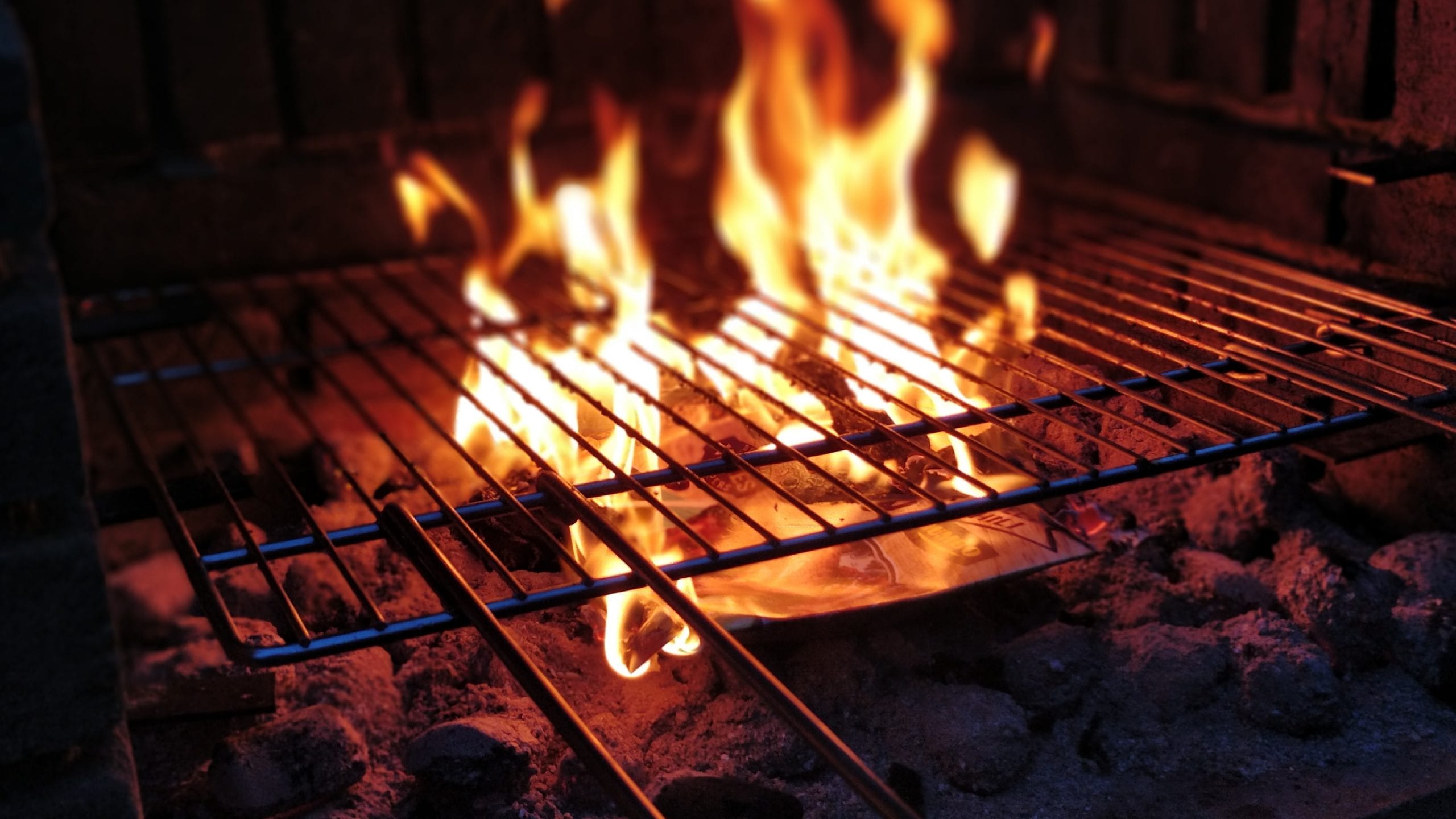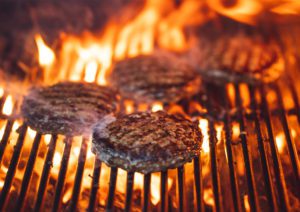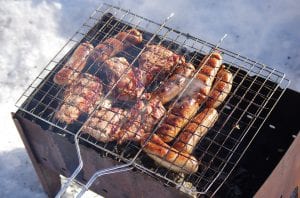Cleaning Your Grill
Like any good relationship, you need to put some work into the one you have with your grill. It doesn’t matter if you’re dealing with a top-of-line model or a cheap knock-off, with proper maintenance, cleaning your grill bound to keep it working a long time.
Polish the Outside
If you have an enamel grill, you can just spray a paper towel with glass cleaner and wipe down the exterior. For a stainless steel grill, you should use a brush and polish made for steel. Then you can buff along the grain with a microfiber cloth.
CLEANING THE GRILL GRATE
After getting a fire going, the first order of business is cleaning the grill grate. The grill grate will see the most action and because of this—and the fact that food will come into direct contact with it—most of your cleaning attention should be focused here.
If you haven’t already, invest in a good grill brush with a long handle and firm bristles or scouring pad.
Soak and Scrub
Remove the grates and the metal plates underneath, and place everything in a bucket of hot, soapy water. After a few minutes in the bucket, give the grates and the plates a good scrubbing with the grill brush; dip and redip it in the soapy water as needed. Give the grates a rinse with the garden hose and set aside. Use the grill brush to scrub the inside of the hood with hot, soapy water (that stuff that looks like peeling paint is a harmless buildup of carbon), and use steel wool for hard-to-get nooks.
Remove and clean the drip pan, then toss it into the soaking bucket. Let sit, then scrub with the grill brush and rinse with the hose. Reassemble the grill (no need to dry anything), and reconnect the propane tank. If there’s a cabinet below, give it a good sweeping with a whisk broom, then wipe it out with a damp paper towel.
OILING THE GRATE
After cleaning the grate, the question is: “To oil, or not to oil.”
Oiling your grill grate helps prevent food from sticking when cooking. To do this, dip a wadded paper towel in a little oil and, using tongs, wipe the oil evenly over the grate. Be careful not to use too much oil, because that’s a sure-fire way to start a good flare-up—a little goes a long way here.
CLEANING YOUR GRILL
Cleaning the grill grate and the ash out is very important, the rest of the grill—not so much. About once a month take a rag and some cleaner to the outside of the grill to keep it looking nice and shiny. Like a good cast iron pan, grilling over and over seasons the inside of your grill.
Fire up the grill, cranking it high for 15 minutes to burn off any food residue. Use a stainless-steel grill brush to scrape anything loose off the grates. Then turn all the knobs off, disconnect the propane tank (or, if your grill is connected to your main gas line, turn off the gas line), and wait until the grill is cool to the touch.
Clean the burner
Make sure the propane tank is turned off. Remove the briquettes and cooking grates, and carefully detach the gas tubes and burner. Clean the tubes with warm, soapy water and dry them with a towel. Wipe the burner clean with a damp cloth.
If you have a gas grill, one part that often gets clogged is its burner tubes. Symptoms of dirty burners include reduced flame size. They may also burn with an orange color instead of the usual blue. Both indicate abnormally low temperatures and an underpowered grill.
Typically a gas grill has multiple burner tubes, though some may only have one. Use a nylon or steel wire brush to gently clean the small holes on the tubes. Be sure to brush from the center of the tube outward, moving sideways (not up and down). Otherwise, you may push debris into the tube or holes themselves instead of clearing them.
Burn Off The Grease
During grilling season, briquettes transfer heat to the cooking grates, leaving them coated with grease. Before firing up your grill, flip over the briquettes, close the lid, and heat the grill on high for 15 minutes.
Certain practices can help discourage deposits of dirt and grease from forming in the first place. One method is to grease the grates of your hot grill with a little cooking oil right before you start cooking. In the same vein, scrubbing grates with raw onion is another tactic you can try. If you do have a grill brush without bristles, it’s a good idea to scrape your hot grates both before and after grilling.
Wrap It Up
If you don’t have a grill cover or never use the one you do have, change your ways. It could reduce your monthly deep-cleans to once a season. Best are vented covers, which allow moisture to escape.
If you have any questions about grills or cleaning your grill then you should contact us here!








